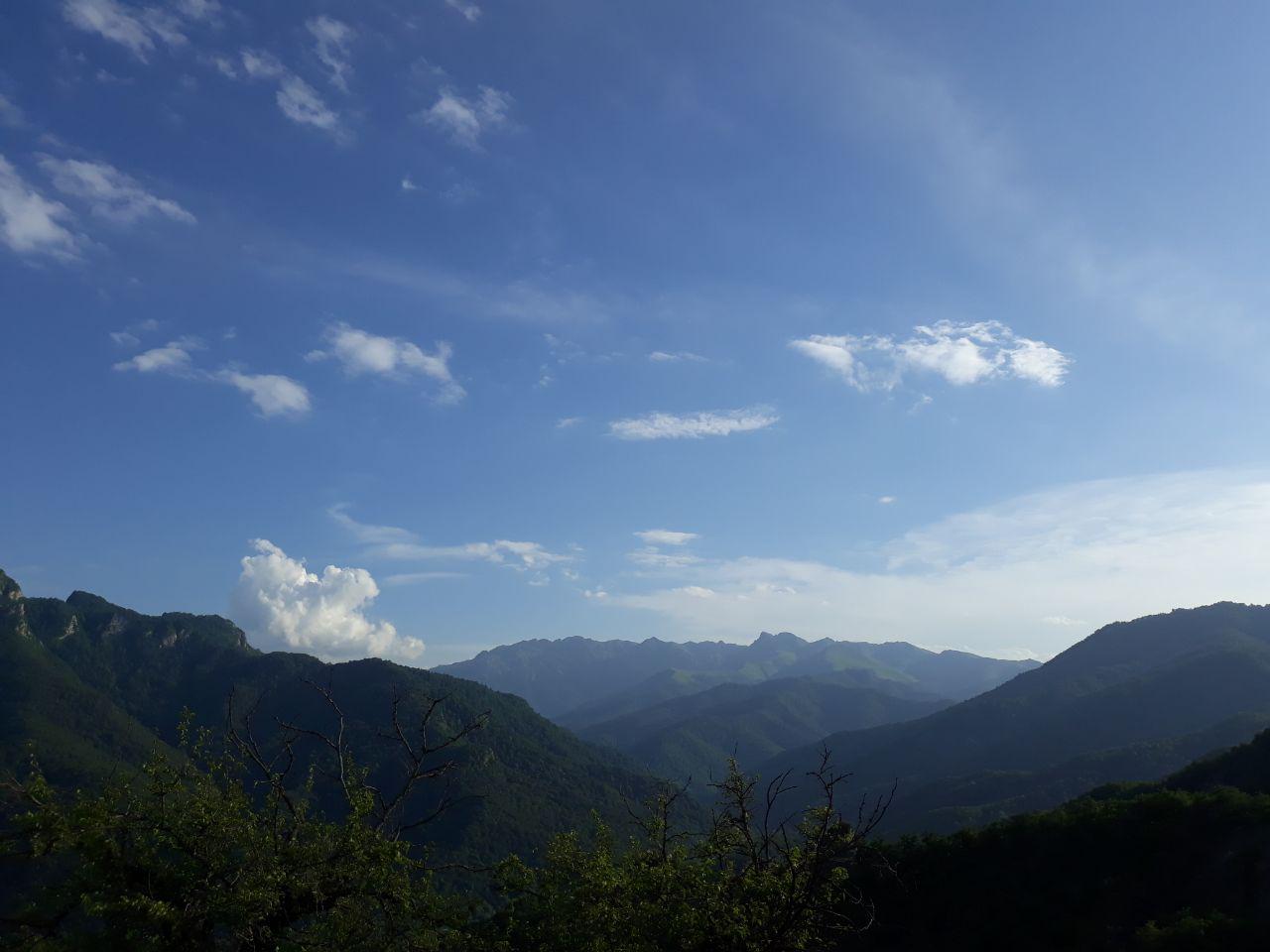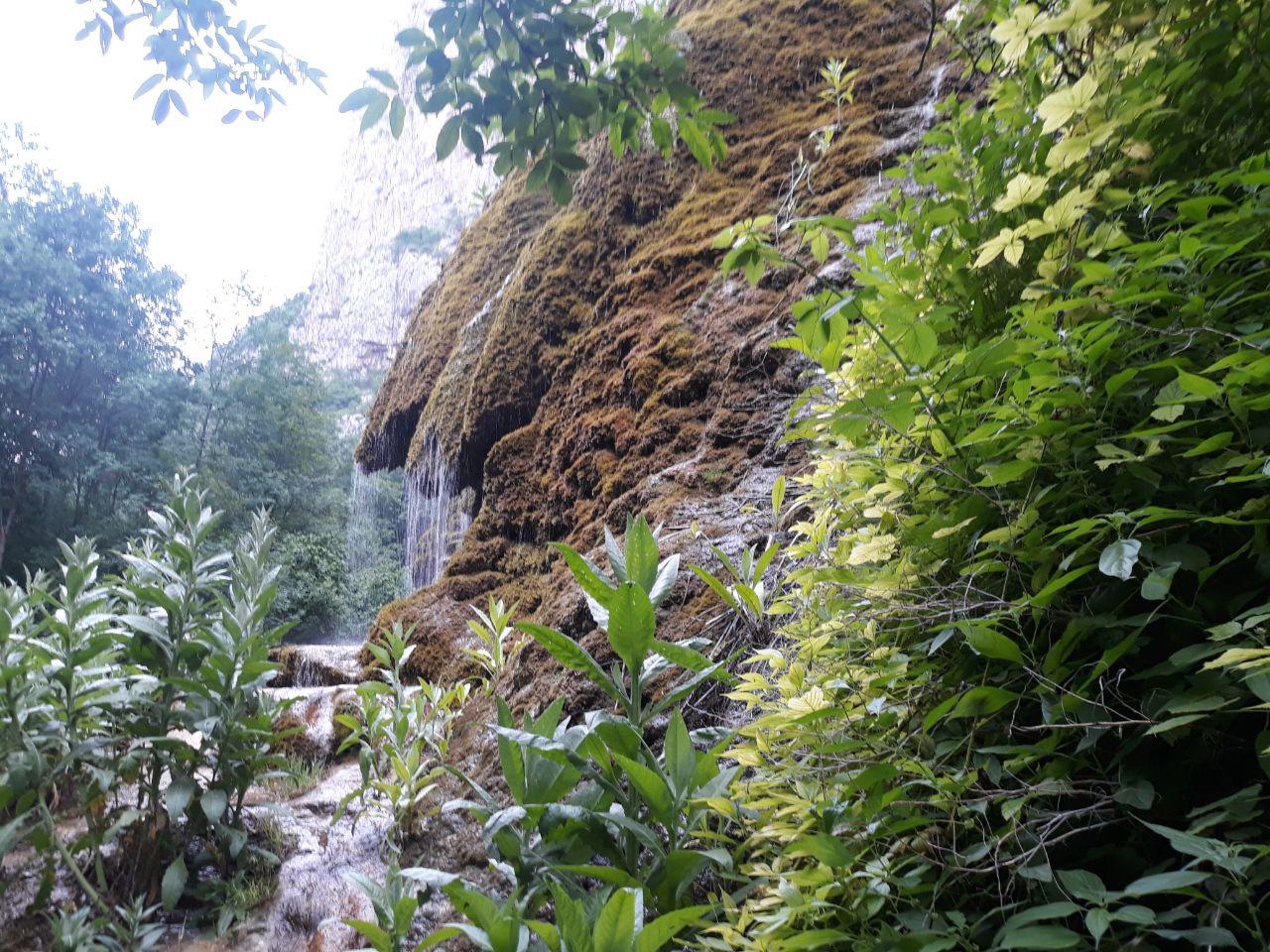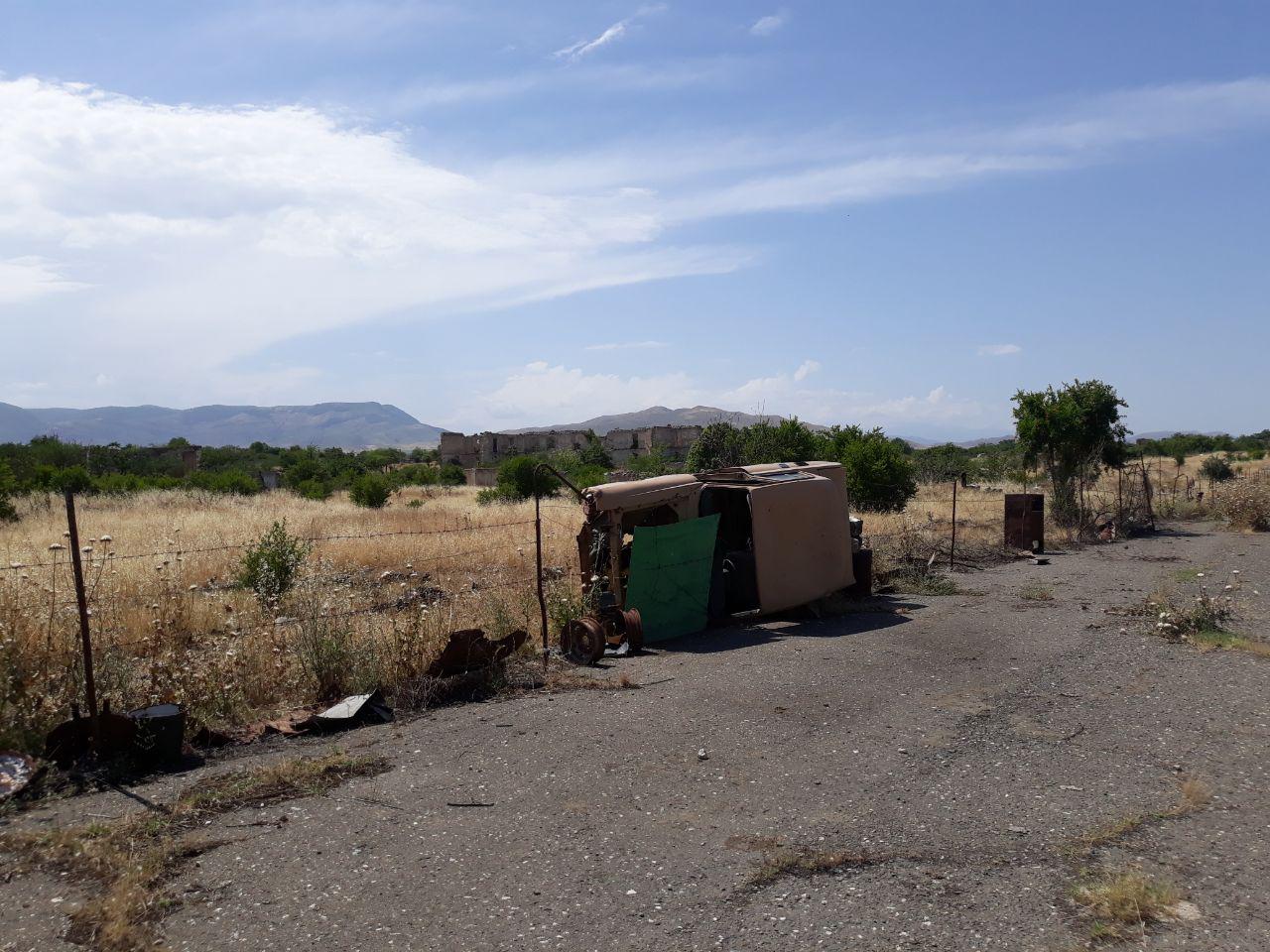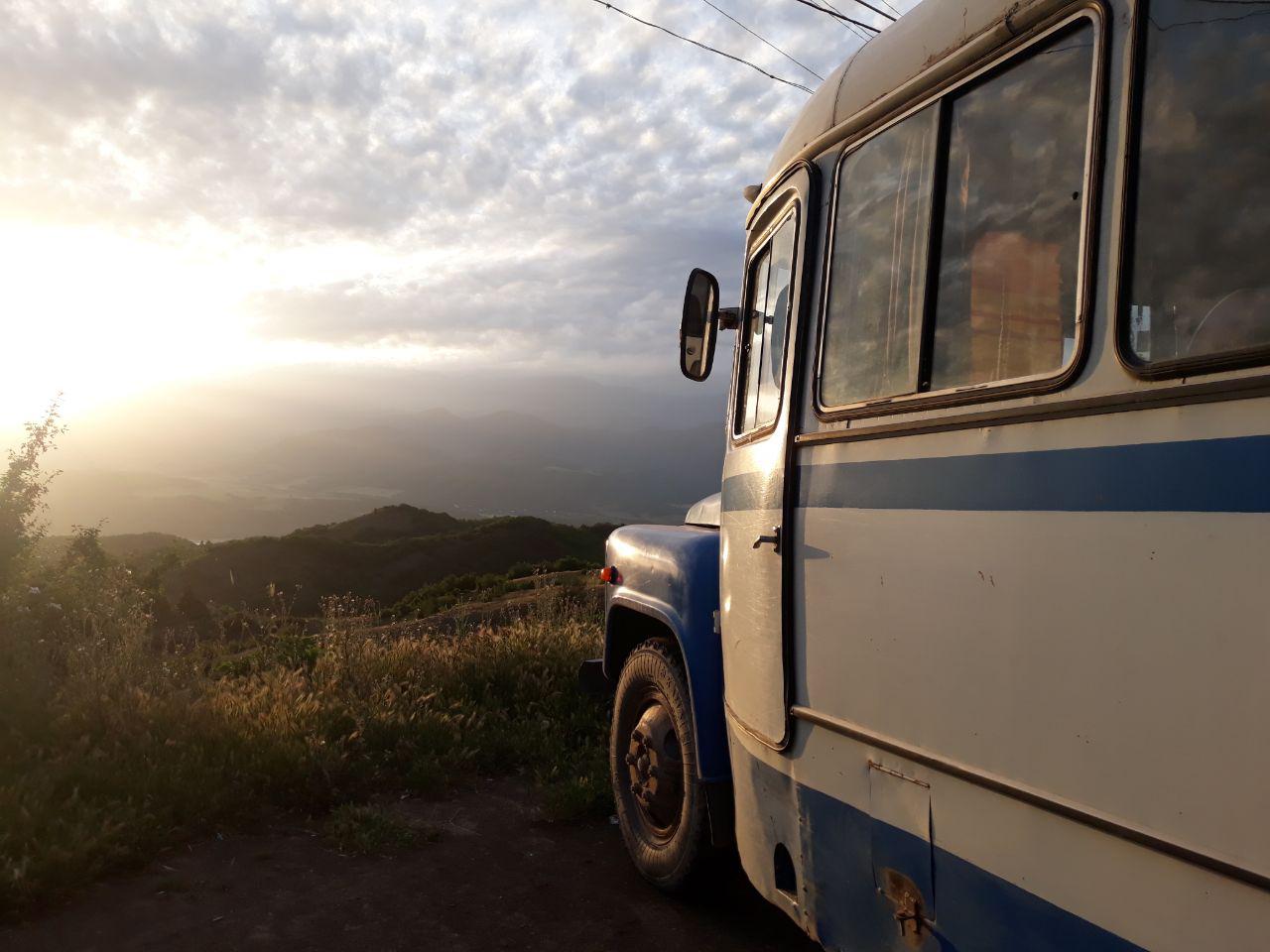Beyond
3 Dec 2019
Nagorno-Karabakh, early june, 2019
Where is the hidden paradise?
Even if the war will devour it
it will rest at peace
in front of us
waiting
for the pomegranates.
Georgia is the gate of entry to places yet little known and understood: perhaps due to the gigantic mountains, due to the conflicts, due to insourmontable political and cultural differences, due to excessive propaganda, due to miscommunication issues, due to the sovietic inheritance that only Russia appears, in her imperial calculus, to know how to administrate and stir, due to the isolation…
The factors are many: The Caucasus is still a region that lives by the fade shadow of the cold war, it nourish an ambiguos relationship with the big powers who surround it: men is able to generate damage without scruples, specially in the less accessible places.
Up to day three are the conflict areas: Abkhazia, South Ossetia, Nagorno-Karabakh
I decided to go, in company of a special person in Nagorno-Karabakh, just to do, as she would say, “a weekend stroll”
To travel in Caucasus is not very different from doing a weekend in London or Paris: transportation is low cost, yet the roads are in bad shape, the places for resting between spartan and pompous, the timing a bit dilatated, but time is a relative unit: in this region one learns to appreciate and enjoy time without being afraid of losing it.
Once said good bye to messy Yerevan, crossed the infinity of lake Sevan and the aridity of the lower caucasus montains at some point transformed into lugubrious mines; beyond lies the Lachin corridor: the entrance to Nagorno Karabakh: exccelency among conflict regions: it has experienced slaughter, it has suffer the pain of war without possibility to tell its full story, it has felt the weight of realpolitik and the scams of propaganda: a vane ambition has detroyed it with the excuse to rebuild new ideal realities within its borders.
Crossed the passport control we are pushed to drive on a road digged up from the mountain walls, curvilinear, dangerous: is not rare to witness boulders rolling down, extreme drivers, obsolete cars that go by inertia.
At some point we stop to eat our dry fish, to drink our beers, we go for a quick coffee to calm down our soul and to thanks to be in the here and now of a place that was hiding surprises.
First
Arrive at the early hours of the night in an unknown place, Matarkert, close to the border with Azerbajian, where soldiers are just waiting for a exchange of fire: is the best time to understand the quality of our choices: we failed at communicate with an unfriendly old woman: in a small shop close by a man gave us a hand to find a place in where to spend the night.
We can imagine to enter into the psyche of Ulisses when we, all of the sudden, discover that every hour we spend in this far away place from ourselves become years.
That night and the day after were a sweet eternity: the natural silence of things, the stars, a walk on the dark, conversations, beers, a reheated dinner, the awareness of two people who love each other, the sunrise.

Second
The next day our destination is Shushi, ancient capital, azeri place burn down to the ground.
Our host is a man from Baku, he is a Pulcinella: he fooled the war, and now he dedicate himself to host young people, to give travel advice, to rebuild the historic mosque of the city, to warn about the idiocy of war, he is a local reference.
He welcomed us with a smile, he forced us to go out and explore. In his house you are only allow to sleep and eat, nothing more.
We go to a waterfall under a canyon that only the fantasy of nature could have created: two plus the absolute.
At night we go to Stepanakert, the current weird capital of the Artsakh Republic: at the time the football world cup of unrecognize nations was taking place there.
It’s a difficult capital to define, it was rebuild thanks to the substancious economical aids of rich armenians who live abroad: it wants to represent the new spirit of Artsakh, hyper polished like the marble of its main square and avenue.
On its back alleys, in a dive bar glutton armenian youngsters and expats alike party to forget the yerevanite pains and to imagine themselves as bohemiens who disorderly drink and sing by the fire.
The night is still full of stars in Nagorno, its mined mountains are of an incorruptible green, the fog, the clouds, the contrast of the color of sky competes with the green, with the desert valleys.
Travel around this country is also a reminder that we are not free but fenced, constantly patrolled by army men as young as unaware of a conflict that is not longer theirs and still its being kept feed into their hearts and minds.
It is not easy to explain Nagorno: the more the hours are left behind the more we feel absorbed by a primigenial beauty, a frame to inhabitants with gispy traits, with incredibly dark eyes that if crossed already know what are the pains and joys of the future that awaits.

Third
Agdam is our zenit moment of a trip that from there will be concluded.
A ghost town, militarized, headquarters of the genocide of azeri population, a tragedy seldom told, silent among the eco of the infamous armenian genocide.
It was not possible to enter in the stomach of the city, however it was possible to admire the inutily of war between the ruined houses of its periphery, the burned cars, the bombed ground.
Every hole, every devastated house became, since the end of the war, a vase from which uncountable pomegranates trees were orange and blooming. Each tree seemed to tell us about the story of the ones who were forced to escape life.
We both felt uneasy by the evilness that now rest underground, trapped by the roots of the trees.
We exhaled our pain, our reverance by going to secular monasteries on top of the mountains, to grab food and received flowers instead, to have coffee in the middle of nowhere.
We follow the sunset in between that immensity: a paradise that has not interest to compete againsts the evilness of men.
After a sovietic ice cream break, we turned ourselves to the passport control, the same darkness that welcomed us says goodbye: again we face the boulders rolling down, the dangerous curves, obsolete cars and reckless drivers.
Again throught the lugubrious mines, the infinity of lake Sevan, now, turned into a black hole, the music, her company, it all keeps my awake on the way to messy Yerevan.
It is now morning: paradise stays still where it was: around the pomegranades, the dark faces lit by darker eyes, the greenery in competition with the blue of the sky.
At morning we wake up from the dizziness, we say goodbye, once again aware of the love we shared, of the misteries godness fortune and mother earth showed to us.
The weekend stroll in Nagorno Karabach is now over, I enter Tbilisi, at night, to the original chaos, to a safe port.
